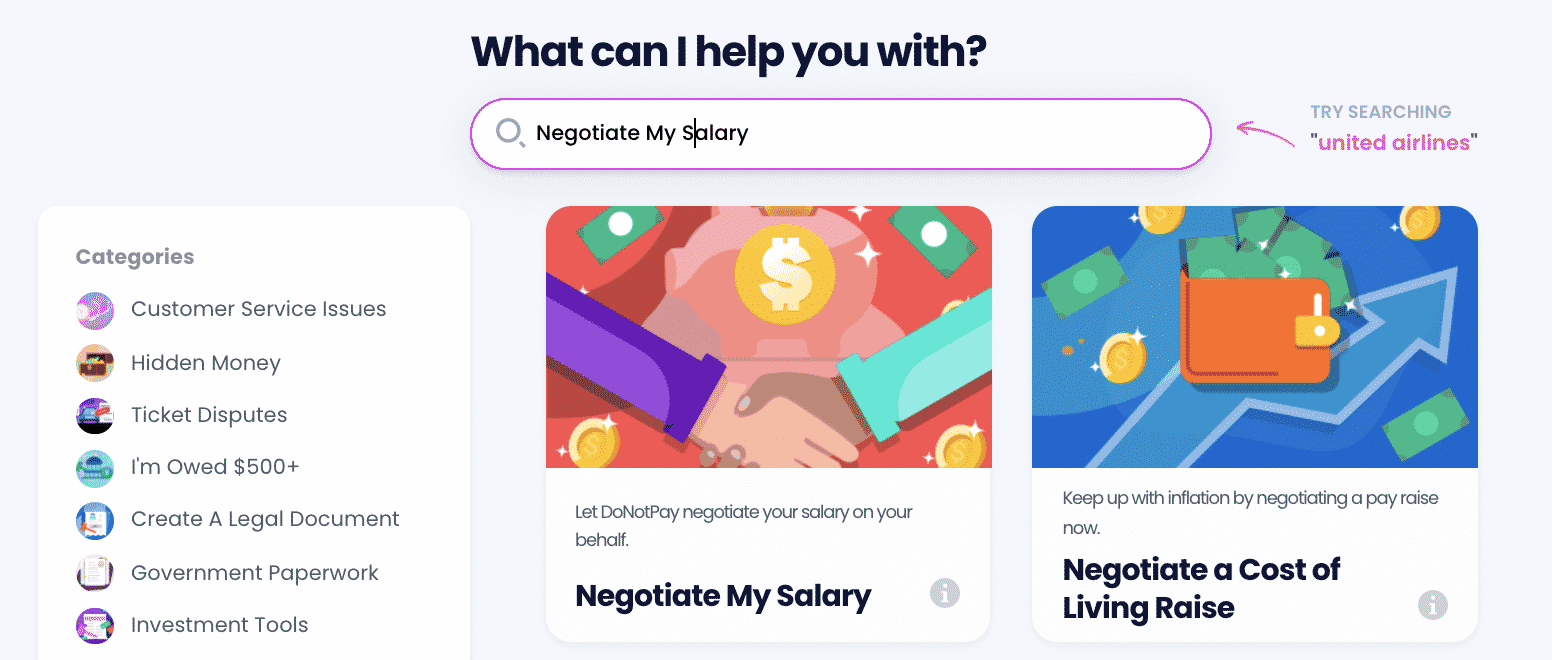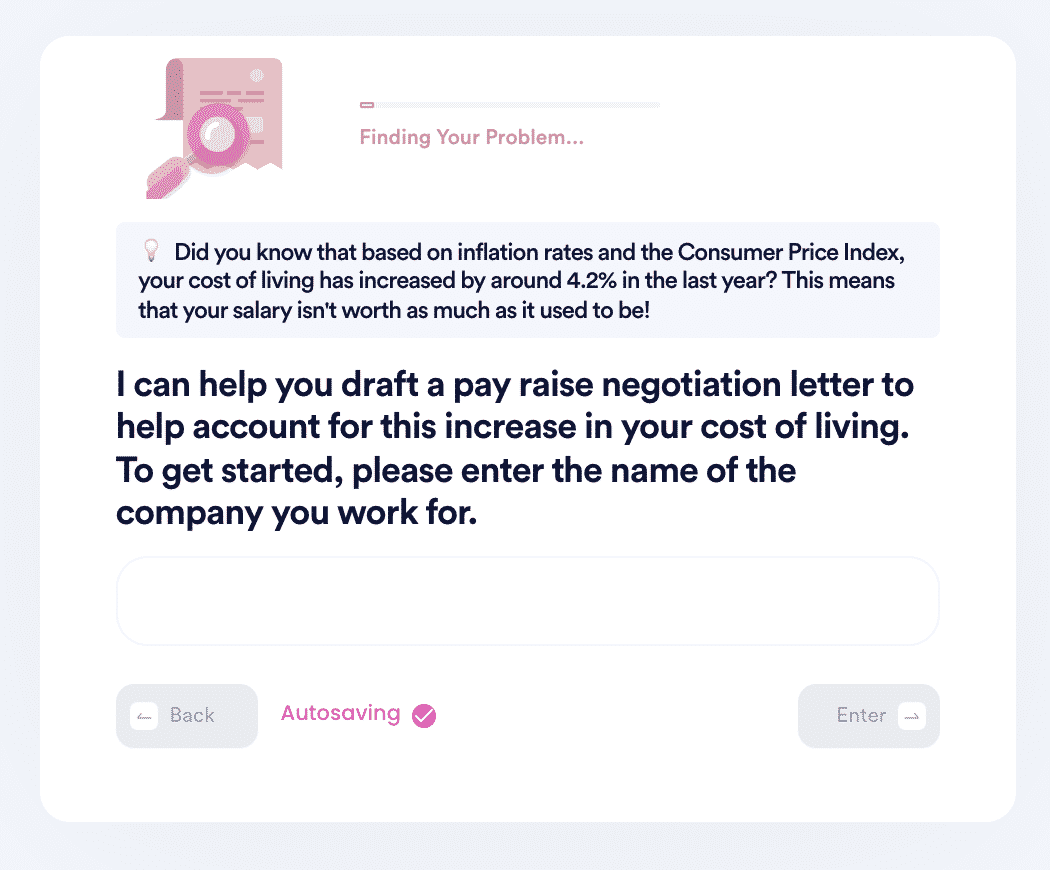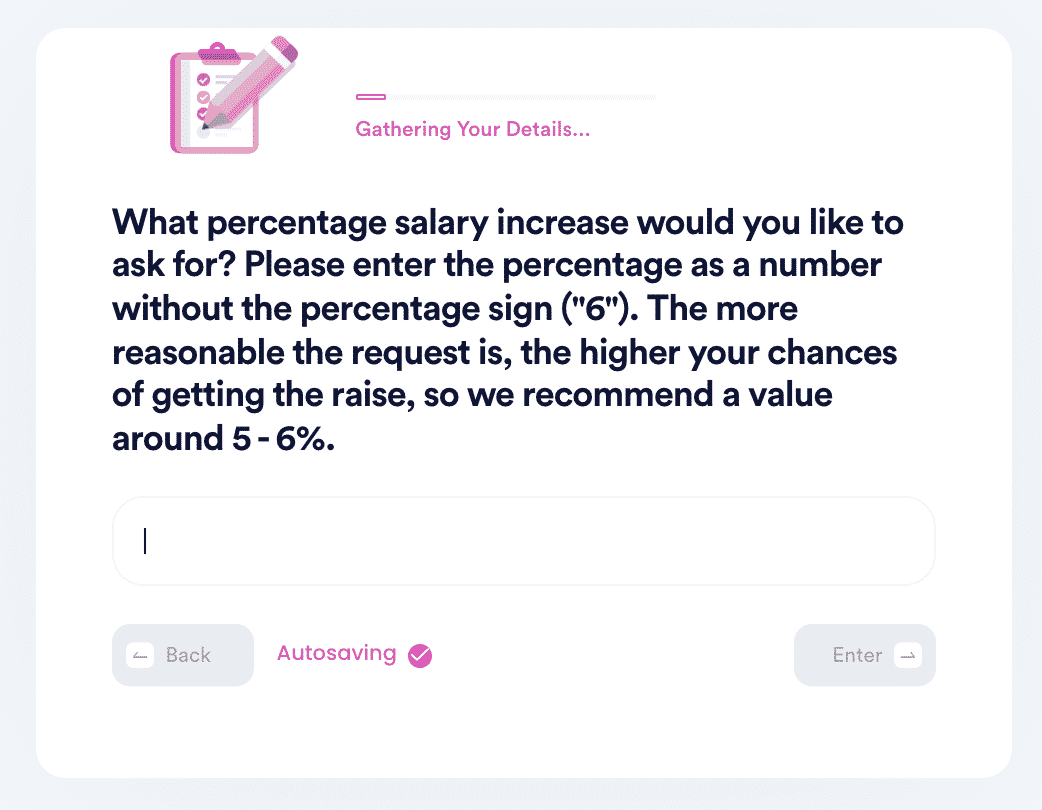How to Quit the Job You Just Started for a Better Offer
You may have just started a new job and are learning the ropes of the position, but you all of a sudden get an offer from another company that pays better. Now you want to know you just started for a better offer from someone else.
Is it okay to quit so soon? Should you go where your skills and talents are better compensated? DoNotPay can help you figure out the best route you can take and how to go about doing it.
Reasons to Quit a Job when You Just Started
While it would seem unusual to quit a job right after you have just started, it's not all that rare. Many people have done it for a variety of reasons. For those who have, the rationalizations for the decision include:
- Conflicting personal life issues
- Deciding the position wasn't for them
- Not getting along with another co-worker
- Getting an offer for a better paying position
Sometimes problems in your life, whether it's medical or mental issues, life can get in the way. You might need to find something with a more flexible schedule. Or, you might decide that the position isn't all that you thought it would be. On occasion, people also leave due to another co-worker's behavior.
The most likely reason people leave a position right after starting is they receive a better offer from some other company. Who wouldn't want to leave when someone is dangling a better-paying carrot in your face?
Things to Consider Before Taking the Plunge to Quit
Before alerting anyone at work that you're thinking of quitting so quickly after starting, you should weigh some of your options before plunging into action. You don't want to be hasty and end up regretting your actions. Points to ponder are offered in the table below.
| Four points to consider before quitting |
|
Weigh both jobs before leaving. One may pay better, but will it offer the same, if not better, benefits? Sometimes, you can stay at one job a little longer to gain experience that you can use in the new position down the line. Take advantage of that and set aside leaving until a future date if you can.
The biggest thing to consider is whether something can get worked out in your new position. This could be for the annoying coworker you can't get along with or the benefits you really wish you had. It might also be for even better pay than the other job you're pondering working for. Would it be worth trying to negotiate your pay at your current job?
If your current employer really wants to keep you on, they might consider increasing your pay rate so quickly after hiring you. If you play your cards right, it could prove to be lucrative in the long run.
How to Quit a Job You Just Started for a Better Offer
If you've weighed all your options and want to know how to , then there are a few things you will need to do. First, you should follow the company's policy for the amount of time you need to give. Many places require you to provide them with a two-week notice before leaving, but some ask for longer periods.
Also, give your notice in writing, whether by a physical letter you type or through an email to the correct recipient. Keep the tone professional, and don't accuse the company of anything. Just explain that things weren't working out, and you found a position that offers what you need at this time.
Remember, though, you're leaving a position you just got started with. Your employer might not be too happy with you because of all the time and money they spent getting you trained in your position.
What to Do if You Want to Stay and Negotiate Your Salary
Suppose you received a better-paying offer from another company, but you really like working where you're at. In that case, you could consider negotiating your salary, even though you have just barely started working there. There's no guarantee they would accept it, but if you present a pretty convincing case, they might be interested in saying yes.
You will need to discuss the matter with your supervisor or the person designated to handle pay raises like this. You can discuss it in a face-face meeting, but not everyone can do it without feeling intimidated. You could try a discussion on the phone about it if that makes you feel more comfortable, but most people choose to write a letter instead.
Negotiation Letters
In the letter, you will need to include why you like working there and go into detail about the other job offer you received that wants to pay you more money. Give the supervisor/manager an idea of the pay rate you would like to receive for you to stay and let them decide if it's in their best interests to keep you on with the increased wages or thank you for your time and let you go.
Crafting a letter like this isn't an easy thing to do, though. You need to make sure you include all the important information and avoid using negative language. Those things usually turn companies off from even considering increasing your salary.
Can DoNotPay Give You a Helping Hand When Negotiating Your Salary?
Yes! DoNotPay can help you . If you decide that you're going to try and see if you can get more money from your current position but don't feel comfortable trying to pen a successful letter to ask for a raise, DoNotPay can certainly help. We will take the information you provide us and craft a professionally written letter to send to your supervisor/manager. You choose whether you want to send it in an email or hand it over yourself.
To accomplish this, here are a few simple steps:
- Search "negotiate my salary" on DoNotPay.

- Enter the name of your company and the industry you work in, so we can find the right wage statistics for your role.

- Answer a series of questions regarding your qualifications and achievements, relocation expenses, and other job offers if applicable.

- Enter the new base salary you would like to request.

Then, you simply wait to get a response from them. Be patient, since it takes time to crunch numbers to see if your proposal will work or not.
Other Helpful Tips from DoNotPay
Whether you want to increase your pay to stay in your current job or negotiate a salary in a new position, DoNotPay can help. Besides generating a letter on your behalf to get a bigger pay rate, we can also:
- Teach you how to ask for a raise
- Help you determine how often you should ask for a raise
- Teach you when you should ask for a raise
- Help you figure out how much of a raise you should ask for
No matter what help you might need, DoNotPay may have the solution for you. Sign up today and see how we can help you get the salary you deserve!


